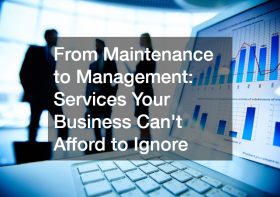The Essential Business Accounting Checklist

Effective accounting is the backbone of any successful business, providing the financial clarity and stability needed to make informed decisions. An organized accounting system helps business operators keep track of their finances, comply with tax laws, and plan for future growth. Maintaining accurate financial records and adhering to a structured accounting checklist ensures that business operators can avoid common pitfalls, reduce financial risks, and enhance overall operational efficiency.
In various industries, following an accounting checklist is vital for managing finances effectively. This checklist should include setting up an accounting system, tracking income and expenses, managing payroll, reconciling bank statements, and preparing financial statements. Additionally, monitoring cash flow, ensuring tax compliance, implementing internal controls, conducting regular audits, and planning for future growth are essential components. By adhering to these practices, business operators can achieve financial stability, meet regulatory requirements, and make strategic decisions that support long-term success.
Setting Up Your Accounting System

Establishing a robust accounting system is the first critical step in maintaining accurate financial records and ensuring the smooth operation of your business. A well-designed accounting system allows for the systematic recording, categorizing, and summarizing of financial transactions. It provides a clear picture of the business’s financial health, making it easier to track income, expenses, and profitability. Implementing an effective accounting system involves choosing the right software, setting up accounts for various financial activities, and ensuring that all transactions are recorded promptly and accurately.
For a local hair salon, setting up an efficient accounting system is essential for managing daily financial activities such as sales, payroll, and inventory. The accounting checklist for a hair salon should include selecting accounting software tailored to the needs of small businesses, setting up categories for different types of services and products, and ensuring accurate tracking of client payments and expenses. By establishing a comprehensive accounting system, a hair salon can streamline its financial processes, reduce errors, and gain valuable insights into its financial performance.
For an e-commerce business, setting up a comprehensive accounting system is crucial to managing the high volume of transactions and diverse revenue streams. The accounting checklist for an e-commerce business should include integrating accounting software with the online sales platform to automatically record sales, returns, and refunds. Additionally, setting up categories for different types of products, tracking inventory levels, and managing payment gateways are essential components. By establishing a robust accounting system, an e-commerce business can ensure accurate financial tracking, streamline operations, and gain valuable insights into sales performance and customer behavior. This organized approach helps the business stay competitive and responsive to market demands.
Tracking Income and Expenses
Tracking income and expenses is a fundamental aspect of maintaining financial health and ensuring that your business can meet its obligations. Accurate tracking allows business operators to understand where their money is coming from and where it is going, which is crucial for budgeting and financial planning. By consistently recording all sources of income and categorizing expenses, business operators can gain a clear overview of their financial situation and make informed decisions to enhance profitability.
For a local restaurant, tracking income and expenses is particularly critical due to the high volume of daily transactions and the need to manage costs effectively. The accounting checklist for a restaurant should include detailed records of sales, including cash and credit card payments, as well as tracking expenses such as food supplies, wages, utilities, and maintenance. By maintaining meticulous records and regularly reviewing financial reports, a restaurant can identify areas where costs can be reduced, optimize pricing strategies, and ensure that the business remains financially viable.
Managing Payroll and Employee Benefits

Managing payroll and employee benefits is a crucial task that ensures employees are compensated accurately and timely. This process involves calculating wages, withholding taxes, and distributing payments, as well as managing benefits such as health insurance, retirement plans, and paid time off. Effective payroll management not only complies with legal requirements but also fosters employee satisfaction and retention. An organized approach to payroll helps avoid errors, penalties, and disputes, ensuring smooth operations and a motivated workforce.
For a bathroom remodeling service, managing payroll and employee benefits can be complex due to the variety of roles and pay structures within the company. The accounting checklist for this business should include setting up a payroll system that handles hourly wages for laborers, salaries for administrative staff, and commissions for sales personnel. Additionally, tracking employee benefits and ensuring compliance with labor laws and tax regulations are essential. By maintaining an efficient payroll system, a bathroom remodeling service can ensure that all employees are paid accurately and on time, contributing to a positive work environment and operational efficiency.
Reconciling Bank Statements
Reconciling bank statements is an essential practice for verifying the accuracy of your business’s financial records. This process involves comparing the business’s internal financial records with bank statements to ensure that all transactions are accurately recorded and accounted for. Regular reconciliation helps identify discrepancies, detect fraud, and correct errors, providing a clear and accurate picture of the business’s financial health. It is a critical step in maintaining the integrity of financial records and supporting informed decision-making.
For a roofing company, reconciling bank statements is vital due to the large transactions involved in purchasing materials and receiving payments for projects. The accounting checklist for a roofing company should include monthly reconciliation of all bank accounts, ensuring that all deposits, withdrawals, and transfers are correctly recorded. By promptly addressing any discrepancies and ensuring that financial records match the bank statements, a roofing company can maintain accurate financial records, avoid potential financial issues, and support effective cash flow management.
Preparing Financial Statements
Preparing financial statements is a key component of financial reporting that provides insights into the business’s performance and financial position. These statements, including the income statement, balance sheet, and cash flow statement, offer a comprehensive view of the business’s revenues, expenses, assets, liabilities, and cash flows. Financial statements are essential for internal decision-making, securing financing, and meeting regulatory requirements. They enable business operators to assess profitability, financial stability, and growth potential.
For a local gutter installer, preparing accurate and timely financial statements is crucial for evaluating the business’s performance and planning for future growth. The accounting checklist for a gutter installation business should include compiling monthly, quarterly, and annual financial statements, ensuring that all financial transactions are accurately recorded and classified. By regularly reviewing these statements, a gutter installer can identify trends, measure profitability, manage resources effectively, and make strategic decisions to support business expansion and success.
Monitoring Cash Flow

Monitoring cash flow is a critical task that ensures a business has enough liquidity to meet its short-term obligations and invest in future growth. Cash flow management involves tracking the movement of money in and out of the business, identifying patterns, and forecasting future cash needs. Effective cash flow monitoring helps business operators avoid shortages, manage debt, and make informed financial decisions. It is essential for maintaining the financial health and stability of the business.
For a lawn care contractor, monitoring cash flow is particularly important due to the seasonal nature of the business. The accounting checklist for a lawn care contractor should include regular review of cash flow statements, tracking customer payments, managing expenses for supplies and equipment, and planning for periods of lower demand. By maintaining a close watch on cash flow, a lawn care contractor can ensure sufficient liquidity during off-peak seasons, invest in growth opportunities, and sustain operations throughout the year.
Ensuring Tax Compliance
Ensuring tax compliance is a fundamental responsibility that involves adhering to all relevant tax laws and regulations. This includes accurately calculating and timely filing of income, sales, payroll, and other applicable taxes. Proper tax compliance helps business operators avoid legal penalties, interest charges, and audits. Staying informed about tax obligations and maintaining accurate records is essential for meeting regulatory requirements and achieving financial peace of mind.
For a tig welding business, ensuring tax compliance can be complex due to the specialized nature of the services and the variety of tax obligations involved. The accounting checklist for a tig welding business should include keeping detailed records of all income and expenses, understanding applicable tax deductions and credits, and timely filing of all required tax returns. By working with a knowledgeable accountant or tax professional, a tig welding business can navigate the complexities of tax compliance, minimize liabilities, and focus on growing the business.
Implementing Internal Controls

Implementing internal controls is a crucial practice for safeguarding a business’s assets and ensuring the accuracy of financial information. Internal controls involve establishing procedures and policies that prevent fraud, errors, and inefficiencies. These controls include segregation of duties, authorization of transactions, regular audits, and secure record-keeping. Effective internal controls help business operators maintain financial integrity, enhance operational efficiency, and build trust with stakeholders.
For a local drywall company, implementing internal controls is vital for managing the financial aspects of multiple projects and ensuring that all transactions are properly recorded. The accounting checklist for a drywall company should include procedures for approving purchases, tracking inventory, and conducting regular audits to verify financial records. By establishing robust internal controls, a drywall company can reduce the risk of financial discrepancies, protect its assets, and ensure accurate financial reporting.
Conducting Regular Audits
Conducting regular audits is essential for verifying the accuracy and completeness of a business’s financial records. Audits involve a thorough examination of financial statements, transactions, and internal controls to ensure compliance with accounting standards and regulations. Regular audits help business operators identify and correct errors, detect fraud, and improve financial practices. They provide assurance that the business’s financial information is reliable and that its operations are running efficiently.
For a pressure washing contractor, regular audits are crucial to maintaining trust with clients and ensuring accurate billing for services rendered. The accounting checklist for a pressure washing contractor should include scheduling internal audits periodically to review financial transactions, assess internal controls, and verify that all revenue and expenses are correctly recorded. By conducting regular audits, a pressure washing contractor can enhance financial transparency, prevent discrepancies, and ensure that the business remains financially sound.
Warehouse audits are a critical part of maintaining operational efficiency and compliance within any storage facility. These audits can be triggered for several reasons, and understanding them can help you avoid potential disruptions.
One common reason for an audit is discrepancies in inventory records. If your inventory levels don’t match your documentation, it can raise red flags for both internal and external auditors. Regularly updating your records and conducting internal audits can help mitigate this risk.
Another reason your warehouse might get audited is non-compliance with safety and regulatory standards. Warehousing services must adhere to strict guidelines regarding the storage of hazardous materials, employee safety, and equipment maintenance. Failure to comply with these regulations can lead to an audit, fines, or even a shutdown.
Moreover, financial inconsistencies related to your warehousing service can also prompt an audit. Inaccuracies in billing, taxation, or financial reporting may lead to a deeper investigation to ensure that all financial practices are above board.
Lastly, sudden changes in your business operations, such as rapid growth or significant changes in product lines, can also attract audit attention. To prevent audits, it’s essential to maintain accurate records, comply with all regulations, and regularly review your warehousing practices.
Planning for Future Growth
Planning for future growth is a vital aspect of business management that involves setting strategic goals and preparing financial projections. This process includes analyzing market trends, evaluating current performance, and identifying opportunities for expansion. Effective growth planning helps business operators allocate resources wisely, anticipate challenges, and capitalize on new opportunities. It is essential for sustaining long-term success and achieving business objectives.
For a concrete contractor, planning for future growth involves assessing the demand for services, expanding the client base, and investing in new equipment and technologies. The accounting checklist for a concrete contractor should include creating detailed financial forecasts, setting measurable growth targets, and developing a strategic plan that outlines steps for achieving these goals. By proactively planning for growth, a concrete contractor can position the business for increased profitability, market share, and operational efficiency.
In conclusion, adhering to an accounting checklist is crucial for any business operator striving for financial stability and success. This checklist, which includes setting up an accounting system, tracking income and expenses, managing payroll, reconciling bank statements, preparing financial statements, monitoring cash flow, ensuring tax compliance, implementing internal controls, conducting regular audits, and planning for future growth, provides a comprehensive framework for managing a business’s finances effectively.
By following this accounting checklist, business operators in various industries can maintain accurate financial records, meet regulatory requirements, and make informed decisions that support long-term growth. Whether you are running a local hair salon, a roofing company, or any other type of business, staying organized and proactive in your accounting practices is essential for achieving financial health and operational excellence. Implementing these practices will help you navigate financial challenges, optimize performance, and build a strong foundation for future success.


